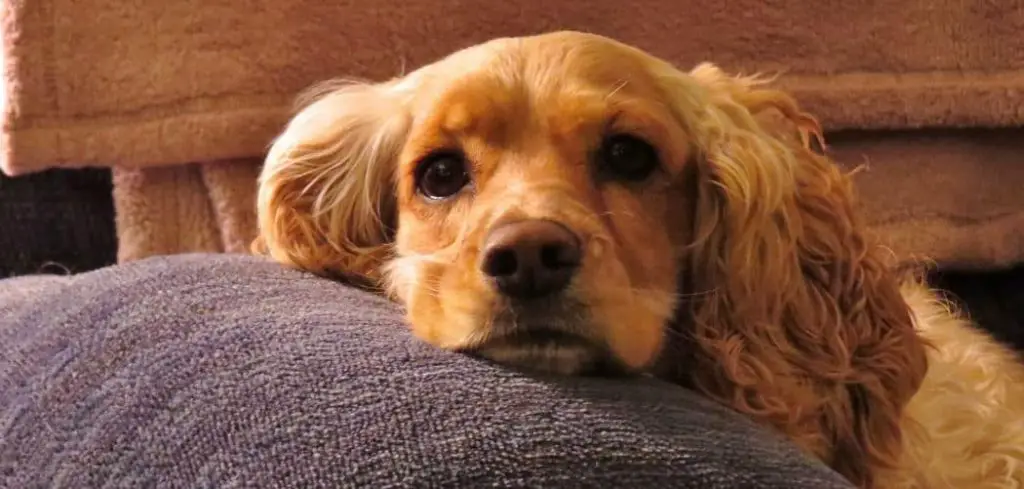Seeing your dog pooping green diarrhea can be concerning, as it often signals digestive upset or a dietary issue.
While the unusual color may not always indicate a serious problem, persistent green stools can point to underlying health concerns that require attention.
We outline the common reasons why a dog may have green diarrhea, what you can do at home, and when to seek veterinary help.
Dog Pooping Green Diarrhea — Why It Happens
Green diarrhea in dogs occurs when the digestive system processes food or bile abnormally. This can result from consuming grass, eating new foods, experiencing gastrointestinal infections, or having rapid intestinal transit.
Green stools may also indicate bile not being absorbed properly, digestive disturbances, or stress-related intestinal upset.

Dog Pooping Green Diarrhea: Common Causes
1. Dietary Changes or Food Coloring
A sudden change in diet or consumption of brightly colored foods can turn your dog’s stool green.
Dogs digest certain artificial dyes or foods differently, leading to temporary green diarrhea.
Signs usually include normal energy and appetite but loose, colored stools. This cause is often mild, and adjusting to a consistent, balanced diet typically resolves the issue.
Read more: Bright Yellow Dog Diarrhea (Understanding causes and treatments)
2. Eating Grass or Plants
Dogs frequently eat grass or leafy plants, which can influence stool color.
The chlorophyll in grass can turn feces green, and if consumed in excess, it may cause diarrhea.
You may notice increased grass chewing, mild stomach upset, or vomiting.
While generally not serious, persistent consumption should be monitored, as it may indicate gastrointestinal discomfort or boredom.
3. Bile Overproduction or Rapid Transit
Green stools can result from bile passing too quickly through the intestines.
If food moves rapidly, bile doesn’t have time to break down fully, giving the stool a green color and watery consistency.
Symptoms may include loose stools, mild cramping, and occasional vomiting. Monitoring hydration and diet can help prevent dehydration, but persistent issues warrant a veterinary check.
4. Gastrointestinal Infections
Bacterial or viral infections such as Salmonella, E. coli, or parvovirus can disturb normal digestion.
These infections speed up intestinal transit and interfere with bile processing, producing green diarrhea.
Dogs may also experience vomiting, fever, lethargy, and a reduced appetite. Puppies, senior dogs, and immunocompromised pets are especially vulnerable and should receive prompt veterinary care.
5. Parasites
Parasites like giardia, coccidia, or hookworms can irritate the intestines.
Parasite infections lead to rapid digestion, sometimes resulting in green, watery stools with mucus.
Signs may include gas, bloating, and weight loss. Fecal testing and deworming are essential to eliminate parasites and restore digestive health.
6. Stress or Environmental Changes
Stressful events such as travel, boarding, or changes in routine can affect digestion.
Stress can cause rapid transit through the intestines, leading to loose, green stools. Other signs may include restlessness, pacing, or decreased appetite.
Maintaining a consistent routine, providing comfort, and minimizing stressors can help prevent recurrent episodes.
Read more: Dog Pooping Liquid Diarrhea (What it means for your dog’s health)
What to Do If Your Dog Is Pooping Green Diarrhea
Carefully monitor your dog’s stool frequency, consistency, and color.
Offer a bland diet of boiled chicken and rice for a few days to help the digestive system recover. Make sure your dog has access to fresh water at all times to prevent dehydration.
Avoid giving treats, table scraps, or rich foods until stools normalize. Observe your dog for changes in energy, appetite, or behavior that may indicate worsening symptoms.
When to Call or Visit Your Vet
Contact a veterinarian if green diarrhea persists for more than 24–48 hours.
Immediate veterinary care is necessary if your dog shows signs of dehydration, including dry gums, sunken eyes, or lethargy. Other warning signs include vomiting, blood in stools, fever, abdominal pain, or jaundice.
Puppies, senior dogs, and pets with pre-existing health issues should be evaluated promptly, as they are more vulnerable to complications.
Your veterinarian may perform stool analysis, blood tests, or imaging to identify infections, parasites, or organ dysfunction. Timely intervention can prevent dehydration, malnutrition, and other serious complications.
Read more: Constant Dog Diarrhea (When to worry and what to do)
Key Takeaway
Green diarrhea in dogs is often linked to dietary changes, bile imbalances, or mild digestive disturbances.
While some cases resolve with home care, persistent or severe green diarrhea requires veterinary evaluation.
Keeping a close eye on your dog’s stools, behavior, and overall health, along with providing appropriate hydration and a bland diet, ensures your dog recovers safely.
Timely veterinary care is essential to rule out infections, parasites, or underlying medical conditions, helping your dog maintain digestive health and overall well-being.
